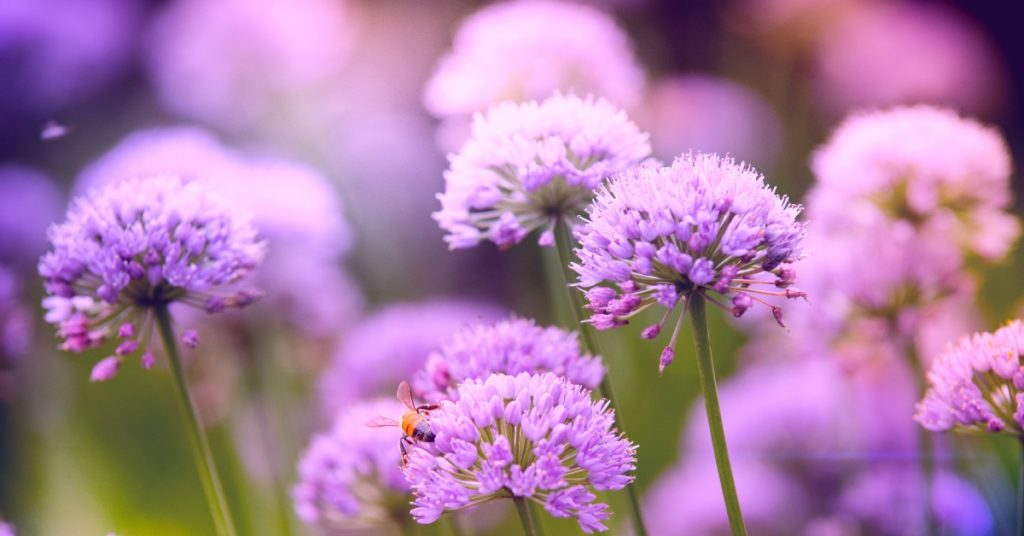
If you’re anything like me, summer can feel like a constant battle between keeping plants alive and fighting away literally every single bug in the entire world.
They buzz around beets, terrorize tomatoes, and creep up around compost bins each and every year, taking bites out of plants without permission. I mean, the audacity—am I right?
And although pesticides may be an option, they also account for serious health implications to both the environment and human health, according to a 2009 study by the Department of Agricultural Chemistry and Soil Science at the University of Calcutta in Kolkata, West Bengal India.
Beyond contaminating soil, water, and vegetation, pesticides also caused an estimated 385 million cases of unintentional acute pesticide poisoning (UAPP) in humans and 7,446 reported fatalities in 2020 alone.
Beyond that, many residential pesticides are non-specific, meaning they’ll kill any bug that comes near your precious plant—including important pollinator insects like butterflies and bees, which are dying at alarming rates.
So, if pesticides are out of the question, then what’s a plant-lovin’ gal to do?
Hint: The Solution? Buy more plants!
Turns out, there are a lot of plants that naturally repel those pesky pests with their scent or even their naturally carnivorous inclination. While these plants may not ensure a completely insect-free garden or home, it’s one step closer to keeping your plants naturally pest-free!
1. Basil
Best Used to Repel: house flies, mosquitoes, fruit flies
Set a basil plant next to your indoor compost bin for a tasty and eco-friendly way to keep your compost free of flies. For a solution on-the-go, TreeHugger suggests the following basil-based insect repellent spray:
- Mix four ounces of boiling water with four to six ounces of clean, fresh basil leaves.
- Steep for several hours and then squeeze and remove the leaves from the mixture.
- Mix the leftover liquid with four ounces of vodka.
- Refrigerate when not in use.
2. Nasturtiums
Best Used to Repel: whiteflies, squash bugs, aphids, beetles, and cabbage loopers
If your garden includes cucumbers, kale, cabbage, kohlrabi, collards, or a similar vegetable, consider planting nasturtiums as a trap crop to help protect your veggies from predatory pests.
In addition to their colorful aesthetic, nasturtiums are also aphid-magnets, drawing these irksome insects away from your prize-worthy cucumbers or kohlrabi. Plant nasturtiums as the perfect companion plant and easily manage any infestations on the nasturtiums by picking off infected leaves.
3. Carnivorous Plants
Best Used to Repel: flies, gnats, moths, bees, mosquitoes, beetles, and wasps
Looking to not just repel those pests, but actively combat their presence? Using sticky leaves and sugary nectar, carnivorous plants such as venus fly traps, sundews, pitcher plants, and butterworts successfully trap and digest small, predatory pests to keep your house and garden predator-free.
Before investing in a carnivorous plant, be sure to research which type of plant is best for you and your needs, as each plant functions differently. While fascinating to watch, venus fly traps can only digest around 5–10 bugs per month and are dormant during the winter season, making them a less effective carnivorous plant for pest management.
For more effective pest control, group forums like this one would recommend sundews, which attract high quantities of gnats and small flies using the sticky glands on their leaves, instead.
4. Lavender
Best Used to repel: beetles, fleas, mosquitos, moths, flies
Don’t let that sweet scent fool you. Lavender is a powerhouse when it comes to repelling insects and keeping your gorgeous garden safe. Beyond planting it outdoors in sunny patches, you can also place tied bouquets around your house (especially near your compost!) to keep those fruit flies and fleas far out of sight.
5. Mint
Best Used to repel: mosquitoes, ants, fleas, beetles, and aphids
Good for mojitos and repelling mosquitos, mint is a must-have for your garden and home. Grow it in a pot indoors or outdoors (otherwise it may take over your garden!) and keep near plants like cabbage and tomatoes to improve vegetable vitality. Mint is also an effective tool within your kitchen to keep ants from crawling on your granite countertops and infesting the food in your cupboards.
6. Lemongrass
Best Used to repel: mosquitoes
If you’ve ever wondered what those mosquito-repellant candles are made of, look no further than the lemongrass plant, also known as “mosquito grass.” Lemongrass’ oils are a natural mosquito repellent, and the plant itself may repel mosquitoes in small areas (with mixed reports from online lemongrass users). For maximum benefit, GoPests.com recommends cutting some lemongrass stalks off to make a lemongrass spray with water and lemongrass. Boil and let the mixture sit overnight to help fend off the mosquitoes in your home or yard.
7. Alliums
Used to repel: cabbage worms, aphids, carrot flies, and slugs
Slug situation? Alliums can help. A part of the onion family, these purple puff balls are the perfect defense against invasive insects, repelled by their pungent smell. Edible alliums include garlic, chives, and onions, for both pest control and cooking kudos.
Have a plant-related pest control solution not listed? Let us know in the comments below!
Additional Resources
- https://www.treehugger.com/plants-that-repel-unwanted-insects-4864336
- https://www.farmersalmanac.com/what-to-plant-to-keep-bugs-away-24734
- https://www.hortzone.com/blog/proven-insect-repelling-plants/
- https://pestech.com/blog/pest-repelling-houseplants/
- https://gardencenterohio.com/herbs-2/herbs-repel-bugs/
- https://venusflytrapworld.com/are-venus-flytraps-good-for-pest-control/
- https://www.nature.com/scitable/blog/green-science/the_dangers_of_pesticides/
- https://www.myrecipes.com/how-to/natural-ways-to-repel-bugs-in-your-kitchen
- https://www.growveg.com/guides/growing-nasturtiums-for-flowers-food-and-pest-contro
- https://www.gopests.com/does-lemongrass-repel-mosquitoes/
Get more like this—Sign up for our daily inspirational newsletter for exclusive content!
__
Photo: Todd Trapani via Pexels




